
Anya, a young academic raised in an orphanage, is on the cusp of success when she’s accused of drug possession. While in limbo hiding from the police, she hits the road with Kristina, another orphan several years Anya’s junior, in search of her possibly mythical grandmother.
You May Also Like
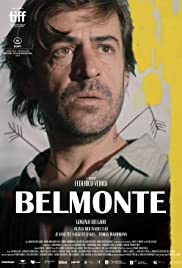
Federico Veiroj’s fourth feature examines the many, often contradictory layers that make up one’s persona, in this case, a single dad and acclaimed artist who must learn to balance family with creativity.

Sex is a huge part of our lives, our very existence depends on it. Yet it’s treated and practiced differently in every society. Explore sexuality down under, from the extraordinary to the taboo, in this fascinating must see documentary revealing the sexual traditions and practices of people in Australia.

Taken from The Arabian Nights, the film tells the story of a wicked sorcerer who tricks Prince Achmed into mounting a magical flying horse and sends the rider off on a flight to his death. But the prince foils the magician’s plan, and soars headlong into a series of wondrous adventures.

Wild Is the Wind represents a (perhaps deliberate) reversal of the situation in The Rose Tattoo (1955). Whereas in Tattoo, Anna Magnani played a widow who could never find a man to measure up to her late husband, in Wind her character, Giola, marries widowed rancher Gino (Anthony Quinn), who is haunted by the memory of his first spouse. The situation is dicier in Wind, since Italian immigrant Gino’s deceased wife was Giola’s sister. Eventually tiring of her husband’s mood swings, Giola turns to his son, Bene (Anthony Franciosa), for emotional and sexual gratification. A Hollywood approximation of the Italian neorealist school of filmmaking, Wild Is the Wind was based on Furia, a story by Vittorio Nino Novarese. ~ Hal Erickson, Rovi
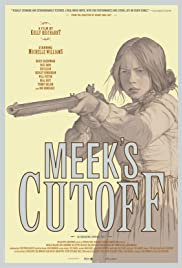
Set in 1845, this drama follows a group of settlers as they embark on a punishing journey along the Oregon Trail. When their guide leads them astray, the expedition is forced to contend with the unforgiving conditions of the high plain desert.
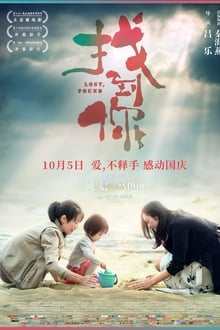
Li Jie, a lawyer, is taking divorce proceedings to try to get custody of her daughter. As she is working hard to earn a better life for her daughter, she hires a baby sitter, Sun Fang, to watch her child. One day, Li comes home only to find her child and Sun have disappeared. Unfortunately, Li is suspected by both her family and the police, and must lean on herself to trace Sun alone.
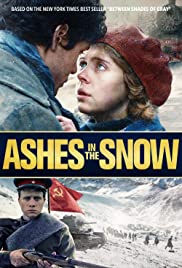
The coming-of-age tale of 16-year-old Lina Vilkas who is deported to Siberia amid Stalin’s reign of terror in the Baltic region during WWII. An aspiring artist, she secretly documents her harrowing journey with her drawings.

A little known episode from the life of Stalinist security police office Julia Brystiger. Her nickname Bloody Luna was a reference to her incredibly brutal methods of interrogation. In the early 1960s, she appears in a centre for the blind on the outskirts of Warsaw, a place often visited by Cardinal Wyszyński, whose imprisonment in 1953-1956 Brystiger supervised personally. During a difficult and heated discussion with the cardinal, Brystiger denounces the communist ideology and begs for forgiveness for her crimes and for guidance in her search for God.

In 1883, US Cavalry lieutenant Matthew Hazard, newly graduated from West Point, is assigned to isolated Fort Delivery on the Mexican border of Arizona, where he meets commanding officer Teddy Mainwarring’s wife Kitty, whom he later rescues from an Indian attack.
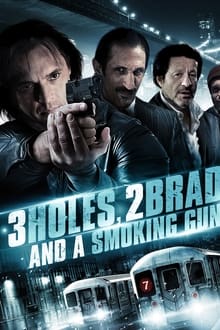
An ex-Hollywood screenwriter now teaching an evening class in New York finds himself in a battle of wits with a devious screenwriter student.

Spring 1995 – after the closure of the Needle Park and the public drug scene in Zurich, eleven-year-old Mia and her heroin addicted mother Sandrine are relocated to the countryside. While caring for her mother, Mia spends time with her imaginary friend and a gang of local teenage misfits. These friendships finally give her the strength to rebel and break free from her abusive mother.
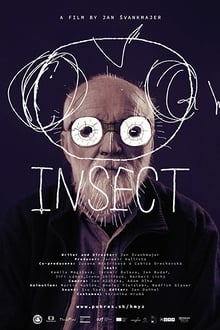
The Dung Beetle is late, the Parasite is asleep and Mrs Larva is more interested in her knitting than the director’s instructions. It’s clear: this amateur theatre company has a long way to go before they can perform their version of The Insect Play, a famous satirical work from 1922 by the brothers Karel and Josef Čapek which features insects with decidedly human traits: greed, egocentrism, jealousy.